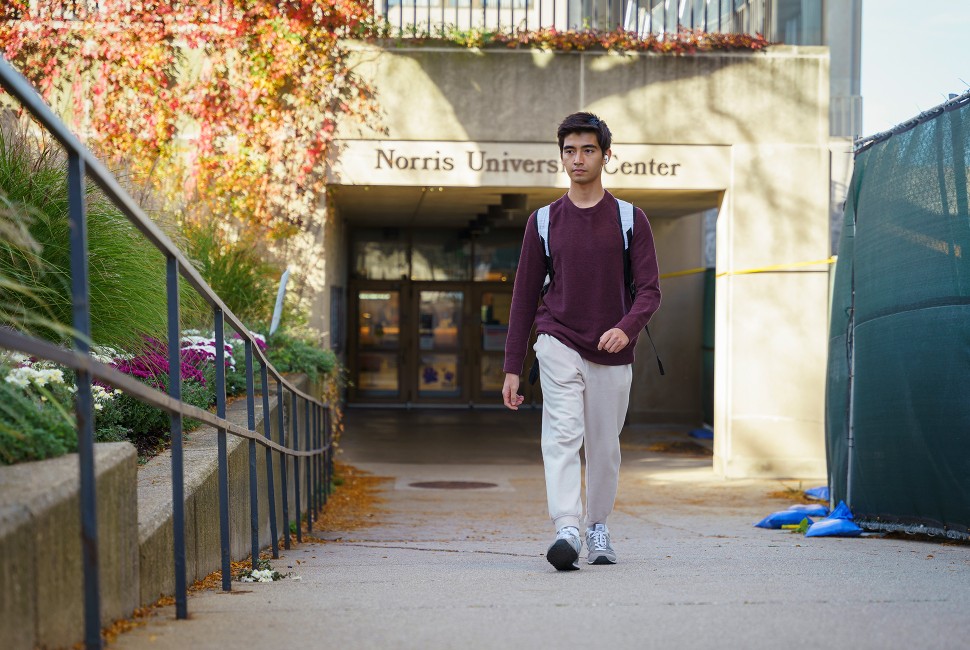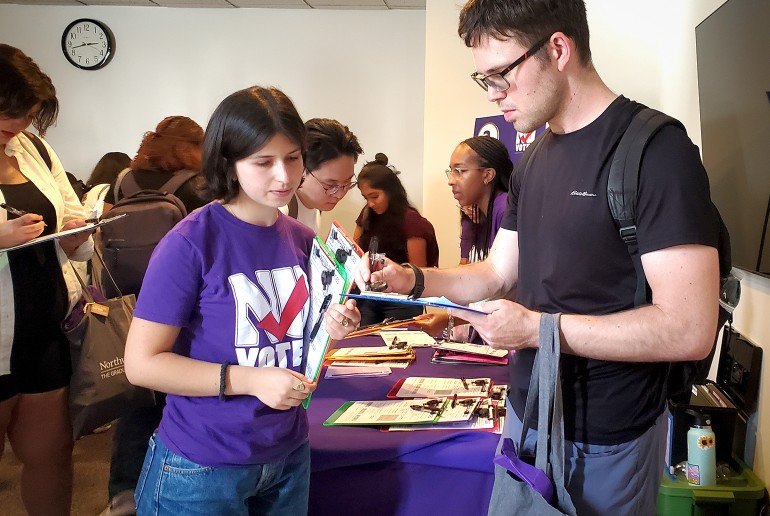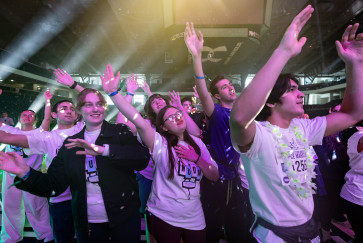Michah Kier, a first-year theatre student at Northwestern and soon-to-be first-time general election voter, is keenly aware that Gen Z may have a decisive voice in the outcome of the historic 2024 presidential election — a “toss up,” according to the election forecasting website 538.
“I’m from Cook County, and I’m planning to vote early in Schaumburg,” Kier said. “I’m voting there both to participate in local politics and because based on the lawn signs I’ve seen there, my vote might matter more.”
With less than two weeks remaining, polls show Vice President Kamala Harris and former president Donald Trump are neck-and-neck heading into Election Day on Nov. 5. The youth vote, like every election, could be pivotal to how the 2024 general election plays out.
Young voters, age 18 to 29, set a new high when an estimated 50% voted in the 2020 election, likely one of the highest rates of youth electoral participation since the voting age was lowered to 18, according to the Center for Information and Research on Civic Learning and Engagement (CIRCLE) at Tufts University. A dramatic increase from turnout in 2016, young voters still lagged significantly behind American voter turnout as a whole.
“This means that older voters’ preferences disproportionately influence election outcomes simply because they turn out to vote. If younger voters turned out at the same rate as other age groups, that would be a tidal wave of change in American politics,” said Erik Nisbet, a Northwestern expert on public opinion and director of the Center for Communication & Public Policy in the School of Communication.
Northwestern students voted at a rate of 41% in the 2022 midterms, compared to 31% of college students across the country.
Because college students are permitted to vote in either their home state or the state of their school, many had a decision to make.
“I sent in my ballot to my home state of Virginia two days ago,” said first-year Medill student Miguel Tsang. “It has more weight there.”
Traditionally young adults have been the least likely age group to be registered to vote, and when they do register, young voters often do not follow through with their plan to vote because of confusion surrounding the voting process and hectic schedules.
However, in the last few elections, Northwestern has become a national leader in reversing these trends among college students. Recently released data from the National Study of Student Learning, Voting, and Engagement (NSLVE) at Tufts University showed that, among 1,200 colleges and universities, the average registration rate for the 2022 midterms was 76.1% of eligible student voters. In contrast, 89.5% of Northwestern students registered to vote, and during the same elections were 33% more likely to cast a vote than other college-aged peers.



